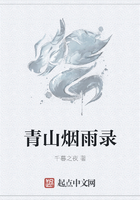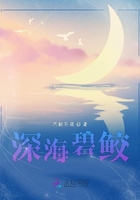MY school-days! The silent gliding on of my existence—the unseen, unfelt progress of my life—from childhood up to youth! Let me think, as I look back upon that flowing water, now a dry channel overgrown with leaves, whether there are any marks along its course, by which I can remember how it ran.
A moment, and I occupy my place in the Cathedral, where we all went together, every Sunday morning, assembling first at school for that purpose. The earthy smell, the sunless air, the sensation of the world being shut out, the resounding of the organ through the black and white arched galleries and aisles, are wings that take me back, and hold me hovering above those days, in a half-sleeping and half-waking dream.
I am not the last boy in the school. I have risen in a few months, over several heads. But the first boy seems to me a mighty creature, dwelling afar off, whose giddy height is unattainable. Agnes says'No,'but I say'Yes,'and tell her that she little thinks what stores of knowledge have been mastered by the wonderful Being, at whose place she thinks I, even I, weak aspirant, may arrive in time. He is not my private friend and public patron, as Steerforth was, but I hold him in a reverential respect. I chiefly wonder what he'll be, when he leaves Doctor Strong's, and what mankind will do to maintain any place against him.
But who is this that breaks upon me? This is Miss Shepherd, whom I love.
Miss Shepherd is a boarder at the Misses Nettingalls' establishment. I adore Miss Shepherd. She is a little girl, in a spencer, with a round face and curly flaxen hair. The Misses Nettingalls' young ladies come to the Cathedral too. I cannot look upon my book, for I must look upon Miss Shepherd. When the choristers chaunt, I hear Miss Shepherd. In the service I mentally insert Miss Shepherd's name—I put her in among the Royal Family. At home, in my own room, I am sometimes moved to cry out,'Oh, Miss Shepherd!'in a transport of love.
For some time, I am doubtful of Miss Shepherd's feelings, but, at length, Fate being propitious, we meet at the dancing-school. I have Miss Shepherd for my partner. I touch Miss Shepherd's glove, and feel a thrill go up the right arm of my jacket, and come out at my hair. I say nothing to Miss Shepherd, but we understand each other. Miss Shepherd and myself live but to be united.
Why do I secretly give Miss Shepherd twelve Brazil nuts for a present, I wonder? They are not expressive of affection, they are difficult to pack into a parcel of any regular shape, they are hard to crack, even in room doors, and they are oily when cracked; yet I feel that they are appropriate to Miss Shepherd. Soft, seedy biscuits, also, I bestow upon Miss Shepherd; and oranges innumerable. Once, I kiss Miss Shepherd in the cloak-room. Ecstasy! What are my agony and indignation next day, when I hear a flying rumour that the Misses Nettingall have stood Miss Shepherd in the stocks for turning in her toes!
Miss Shepherd being the one pervading theme and vision of my life, how do I ever come to break with her? I can't conceive. And yet a coolness grows between Miss Shepherd and myself. Whispers reach me of Miss Shepherd having said she wished I wouldn't stare so, and having avowed a preference for Master Jones—for Jones! a boy of no merit whatever! The gulf between me and Miss Shepherd widens. At last, one day, I meet the Misses Nettingalls' establishment out walking. Miss Shepherd makes a face as she goes by, and laughs to her companion. All is over. The devotion of a life—it seems a life, it is all the same—is at an end; Miss Shepherd comes out of the morning service, and the Royal Family know her no more.
I am higher in the school, and no one breaks my peace. I am not at all polite, now, to the Misses Nettingalls' young ladies, and shouldn't dote on any of them, if they were twice as many and twenty times as beautiful. I think the dancing-school a tiresome affair, and wonder why the girls can't dance by themselves and leave us alone. I am growing great in Latin verses, and neglect the laces of my boots. Doctor Strong refers to me in public as a promising young scholar. Mr. **** is wild with joy, and my aunt remits me a guinea by the next post.
The shade of a young butcher rises, like the apparition of an armed head in Macbeth. Who is this young butcher? He is the terror of the youth of Canterbury. There is a vague belief abroad, that the beef suet with which he anoints his hair gives him unnatural strength, and that he is a match for a man. He is a broad-faced, bull-necked, young butcher, with rough red cheeks, an ill-conditioned mind, and an injurious tongue. His main use of this tongue, is, to disparage Doctor Strong's young gentlemen. He says, publicly, that if they want anything he'll give it 'em. He names individuals among them (myself included), whom he could undertake to settle with one hand, and the other tied behind him. He waylays the smaller boys to punch their unprotected heads, and calls challenges after me in the open streets. For these sufficient reasons I resolve to fight the butcher.
It is a summer evening, down in a green hollow, at the corner of a wall. I meet the butcher by appointment. I am attended by a select body of our boys; the butcher, by two other butchers, a young publican, and a sweep. The preliminaries are adjusted, and the butcher and myself stand face to face. In a moment the butcher lights ten thousand candles out of my left eyebrow. In another moment, I don't know where the wall is, or where I am, or where anybody is. I hardly know which is myself and which the butcher, we are always in such a tangle and tussle, knocking about upon the trodden grass. Sometimes I see the butcher, bloody but confident; sometimes I see nothing, and sit gasping on my second's knee; sometimes I go in at the butcher madly, and cut my knuckles open against his face, without appearing to discompose him at all. At last I awake, very queer about the head, as from a giddy sleep, and see the butcher walking off, congratulated by the two other butchers and the sweep and publican, and putting on his coat as he goes; from which I augur, justly, that the victory is his.
I am taken home in a sad plight, and I have beef-steaks put to my eyes, and am rubbed with vinegar and brandy, and find a great puffy place bursting out on my upper lip, which swells immoderately. For three or four days I remain at home, a very ill-looking subject, with a green shade over my eyes; and I should be very dull, but that Agnes is a sister to me, and condoles with me, and reads to me, and makes the time light and happy. Agnes has my confidence completely, always; I tell her all about the butcher, and the wrongs he has heaped upon me; she thinks I couldn't have done otherwise than fight the butcher, while she shrinks and trembles at my having fought him.
Time has stolen on unobserved, for Adams is not the head-boy in the days that are come now, nor has he been this many and many a day. Adams has left the school so long, that when he comes back, on a visit to Doctor Strong, there are not many there, besides myself, who know him. Adams is going to be called to the bar almost directly, and is to be an advocate, and to wear a wig. I am surprised to find him a meeker man than I had thought, and less imposing in appearance. He has not staggered the world yet, either; for it goes on (as well as I can make out) pretty much the same as if he had never joined it.
A blank, through which the warriors of poetry and history march on in stately hosts that seem to have no end—and what comes next! I am the head-boy, now! I look down on the line of boys below me, with a condescending interest in such of them as bring to my mind the boy I was myself, when I first came there. That little fellow seems to be no part of me; I remember him as something left behind upon the road of life—as something I have passed, rather than have actually been—and almost think of him as of someone else.
And the little girl I saw on that first day at Mr. Wickfield's, where is she? Gone also. In her stead, the perfect likeness of the picture, a child likeness no more, moves about the house; and Agnes—my sweet sister, as I call her in my thoughts, my counsellor and friend, the better angel of the lives of all who come within her calm, good, self-denying influence—is quite a woman.
What other changes have come upon me, besides the changes in my growth and looks, and in the knowledge I have garnered all this while? I wear a gold watch and chain, a ring upon my little finger, and a long-tailed coat; and I use a great deal of bear's grease—which, taken in conjunction with the ring, looks bad. Am I in love again? I am. I worship the eldest Miss Larkins.
The eldest Miss Larkins is not a little girl. She is a tall, dark, black-eyed, fine figure of a woman. The eldest Miss Larkins is not a chicken; for the youngest Miss Larkins is not that, and the eldest must be three or four years older. Perhaps the eldest Miss Larkins may be about thirty. My passion for her is beyond all bounds.
The eldest Miss Larkins knows officers. It is an awful thing to bear. I see them speaking to her in the street. I see them cross the way to meet her, when her bonnet (she has a bright taste in bonnets) is seen coming down the pavement, accompanied by her sister's bonnet. She laughs and talks, and seems to like it. I spend a good deal of my own spare time in walking up and down to meet her. If I can bow to her once in the day (I know her to bow to, knowing Mr. Larkins), I am happier. I deserve a bow now and then. The raging agonies I suffer on the night of the Race Ball, where I know the eldest Miss Larkins will be dancing with the military, ought to have some compensation, if there be even-handed justice in the world.
My passion takes away my appetite, and makes me wear my newest silk neckerchief continually. I have no relief but in putting on my best clothes, and having my boots cleaned over and over again. I seem, then, to be worthier of the eldest Miss Larkins. Everything that belongs to her, or is connected with her, is precious to me. Mr. Larkins (a gruff old gentleman with a double chin, and one of his eyes immovable in his head) is fraught with interest to me. When I can't meet his daughter, I go where I am likely to meet him. To say'How do you do, Mr. Larkins? Are the young ladies and all the family quite well?'seems so pointed, that I blush.
I think continually about my age. Say I am seventeen, and say that seventeen is young for the eldest Miss Larkins, what of that? Besides, I shall be one-and-twenty in no time almost. I regularly take walks outside Mr. Larkins's house in the evening, though it cuts me to the heart to see the officers go in, or to hear them up in the drawing-room, where the eldest Miss Larkins plays the harp. I even walk, on two or three occasions, in a sickly, spoony manner, round and round the house after the family are gone to bed, wondering which is the eldest Miss Larkins's chamber (and pitching, I dare say now, on Mr. Larkins's instead); wishing that a fire would burst out; that the assembled crowd would stand appalled; that I, dashing through them with a ladder, might rear it against her window, save her in my arms, go back for something she had left behind, and perish in the flames. For I am generally disinterested in my love, and think I could be content to make a figure before Miss Larkins, and expire.
Generally, but not always. Sometimes brighter visions rise before me. When I dress (the occupation of two hours), for a great ball given at the Larkins's (the anticipation of three weeks), I indulge my fancy with pleasing images. I picture myself taking courage to make a declaration to Miss Larkins. I picture Miss Larkins sinking her head upon my shoulder, and saying,'Oh, Mr. Copperfield, can I believe my ears!'I picture Mr. Larkins waiting on me next morning, and saying,'My dear Copperfield, my daughter has told me all. Youth is no objection. Here are twenty thousand pounds. Be happy!'I picture my aunt relenting, and blessing us; and Mr. **** and Doctor Strong being present at the marriage ceremony. I am a sensible fellow, I believe—I believe, on looking back, I mean—and modest I am sure; but all this goes on notwithstanding. I repair to the enchanted house, where there are lights, chattering, music, flowers, officers (I am sorry to see), and the eldest Miss Larkins, a blaze of beauty. She is dressed in blue, with blue flowers in her hair—forget-me-nots—as if SHE had any need to wear forget-me-nots. It is the first really grown-up party that I have ever been invited to, and I am a little uncomfortable; for I appear not to belong to anybody, and nobody appears to have anything to say to me, except Mr. Larkins, who asks me how my schoolfellows are, which he needn't do, as I have not come there to be insulted.
But after I have stood in the doorway for some time, and feasted my eyes upon the goddess of my heart, she approaches me—she, the eldest Miss Larkins!—and asks me pleasantly, if I dance?
I stammer, with a bow,'With you, Miss Larkins.'
'With no one else?'inquires Miss Larkins.
'I should have no pleasure in dancing with anyone else.'
Miss Larkins laughs and blushes (or I think she blushes), and says,'Next time but one, I shall be very glad.'
The time arrives.'It is a waltz, I think,'Miss Larkins doubtfully observes, when I present myself.'Do you waltz? If not, Captain Bailey—'
But I do waltz (pretty well, too, as it happens), and I take Miss Larkins out. I take her sternly from the side of Captain Bailey. He is wretched, I have no doubt; but he is nothing to me. I have been wretched, too. I waltz with the eldest Miss Larkins! I don't know where, among whom, or how long. I only know that I swim about in space, with a blue angel, in a state of blissful delirium, until I find myself alone with her in a little room, resting on a sofa. She admires a flower (pink camellia japonica, price half-a-crown), in my button-hole. I give it her, and say:
'I ask an inestimable price for it, Miss Larkins.'
'Indeed! What is that?'returns Miss Larkins.
'A flower of yours, that I may treasure it as a miser does gold.'
'You're a bold boy,'says Miss Larkins.'There.'
She gives it me, not displeased; and I put it to my lips, and then into my breast. Miss Larkins, laughing, draws her hand through my arm, and says,'Now take me back to Captain Bailey.'
I am lost in the recollection of this delicious interview, and the waltz, when she comes to me again, with a plain elderly gentleman who has been playing whist all night, upon her arm, and says:
'Oh! here is my bold friend! Mr. Chestle wants to know you, Mr. Copperfield.'
I feel at once that he is a friend of the family, and am much gratified.
'I admire your taste, sir,'says Mr. Chestle.'It does you credit. I suppose you don't take much interest in hops; but I am a pretty large grower myself; and if you ever like to come over to our neighbourhood—neighbourhood of Ashford—and take a run about our place,—we shall be glad for you to stop as long as you like.'
I thank Mr. Chestle warmly, and shake hands. I think I am in a happy dream. I waltz with the eldest Miss Larkins once again. She says I waltz so well! I go home in a state of unspeakable bliss, and waltz in imagination, all night long, with my arm round the blue waist of my dear divinity. For some days afterwards, I am lost in rapturous reflections; but I neither see her in the street, nor when I call. I am imperfectly consoled for this disappointment by the sacred pledge, the perished flower.
'Trotwood,'says Agnes, one day after dinner.'Who do you think is going to be married tomorrow? Someone you admire.'
'Not you, I suppose, Agnes?'
'Not me!'raising her cheerful face from the music she is copying.'Do you hear him, Papa?—The eldest Miss Larkins.'
'To—to Captain Bailey?'I have just enough power to ask.
'No; to no Captain. To Mr. Chestle, a hop-grower.'
I am terribly dejected for about a week or two. I take off my ring, I wear my worst clothes, I use no bear's grease, and I frequently lament over the late Miss Larkins's faded flower. Being, by that time, rather tired of this kind of life, and having received new provocation from the butcher, I throw the flower away, go out with the butcher, and gloriously defeat him.
This, and the resumption of my ring, as well as of the bear's grease in moderation, are the last marks I can discern, now, in my progress to seventeen.















